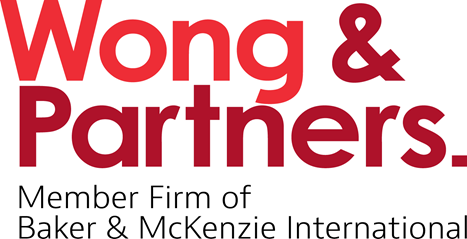In brief
On 7 November 2022, the Energy Commission issued an information guide for the Corporate Green Power Programme (CGPP) which was introduced earlier this month (“Guide“). The earlier alert issued on this can be found here. The CGPP aims to promote the adoption of green energy amongst corporate companies in Malaysia through the use of virtual power purchase agreements (VPPA) which is also known as the Corporate Green Power Agreement (CGPA).
The CGPP is open for application starting from 7 November 2022 until 6 February 2023. The new Guide sets out the conditions for participation and the application procedure of the CGPP.
In Detail
A. The Guide provides that the financial transactions anticipated between the solar developers and corporate consumers under the CGPA are as follows:
- The Electricity Utility Company will pay the solar developers the System Marginal Price (SMP) for the energy exported by the solar power plant to the electricity supply system.
- The Electricity Utility Company will charge the corporate consumers for the amount of energy supplied based on the approved tariff rate.
- The CGPA will set out a settlement price mechanism between the solar developer and the corporate consumer which can either be a fixed energy or a price structure agreed between the parties.
B. The Guide also sets out the eligibility criteria for participation in the CGPP and we have set out below some of the more notable criteria for reference:
- Solar power plant
- Only new solar power plant projects with an export capacity from five MW to 30 MW are eligible to participate in the CGPP. The solar power plant is required to be completed and operational by 2025.
- The solar power plant shall ensure compliance with the legal and regulatory requirements related to the development and operation of solar power plant and the technical requirements of Electricity Utility Company.
- Solar power plants with battery energy storage system (BESS) installed are likely to stand a higher chance to be selected for the CGPP, provided that the BESS is able to support at least 1 hour of full export capacity.
- Solar developer
- Foreign equity of up to 49% is permitted.
- The applicant(s) must have an asset of at least RM 10 million, and in the case of a consortium, a paid-up capital of not less than RM 1 million for each of the consortium member.
- The applicant(s) must have at least three years of relevant experience in financing, development, implementation and operation of large solar PV plant with capacity not less than 1 MW.
- The applicant(s) shall have identified the site of the project and the route of interconnection facility and with documentation proof on the right to use the lands or project sites.
- A solar developer may only have up to three corporate consumers.
- Corporate consumer
- The corporate consumer must be a company operating in the manufacturing or service industry in Peninsular Malaysia with credible financial position for the last three years.
- If the corporate consumer is a company planning to establish and operate in Peninsular Malaysia within the next two years, it is required to have proven documentation from the authority (i.e., Ministry of International Trade and Industry) and a projected annual revenue of not less than RM 10 million.
- The energy demand of the corporate consumer shall not be less than 1 MW.
Key Observations
We set out below some of our key observations for potential investors to take note:
- The Guide mandates that the actual annual export energy of the solar power plant shall not be more than 10% of the projected annual export energy in the application submitted. It is unclear whether this requirement means that only 10% of the projected annual export energy can be exported or whether the Single Buyer (as defined in the Guide) is only obligated to take up to 110% of the projected annual export energy.
- Foreign investors will be required to collaborate with a local company to be eligible for the CGPP and there is a five year moratorium on the change of shareholding and sale of shares although this has often been the case for power projects in Malaysia.
- Eligible corporate consumers are restricted to only those operating in the manufacturing and service industry and while these would cover a majority of major businesses, there is no clear definition as to what would fall within manufacturing and service industry. As such, there may be some industries that may not be eligible to participate in the CGPP.
- The Guide is silent on whether the Renewable Energy Certificates (RECs) must be retired by the corporate consumer or whether it can be on-sold or traded.
- The solar developer is required to furnish a commitment bond together with the application but no further details on the commitment bond, including the amount, are provided in the Guide.
- Solar developers can only obtain project financing from local financial institutions.
- Given that the CGPP is not a typical power project, there may be bankability considerations to be taken into account surrounding the certainty of revenue, termination payments and securitization of the RECs.
While the Guide provides welcome information on the implementation of the CGPP in Malaysia, there are still several ambiguities within the Guide and clarifications that applicants would need to make. At the time of writing, the Energy Commission has not issued any further clarification on the Guide and we have been made to understand that the Energy Commission will establish an online enquiry platform for the CGPP. Potential investors are advised to keep an eye out for any updates and/or calls for enquiries on the Energy Commission website.
Source: Information Guide for Corporate Green Power Programme (For Solar PV Plant) published by Energy Commission, 7 November 2022
* * * * *

This client alert was issued by Wong & Partners, a member firm of Baker McKenzie International, a global law firm with member law firms around the world. In accordance with the common terminology used in professional service organizations, reference to a “partner” means a person who is a partner or equivalent in such a law firm. Similarly, reference to an “office” means an office of any such law firm. This may qualify as “Attorney Advertising” requiring notice in some jurisdictions. Prior results do not guarantee a similar outcome.





